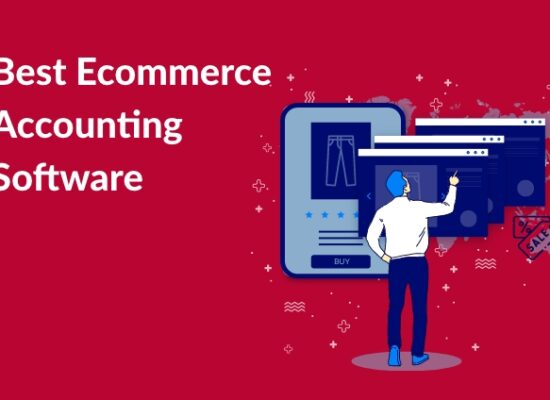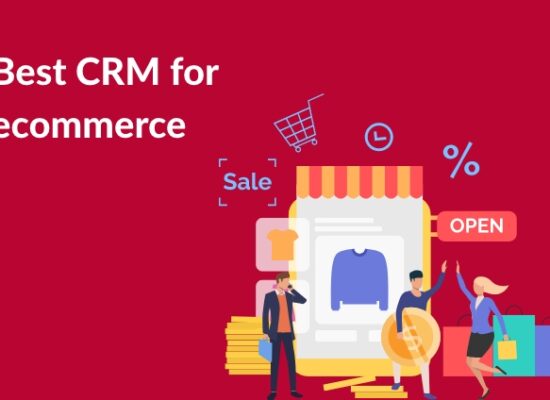- Let’s have a look at some key features of ecommerce software’s:
- Let’s explore the Best Ecommerce software’s
- Ecommerce Inventory Management Software:
- Ecommerce Order Management Software:
- Ecommerce Automation Software:
- Ecommerce Accounting Software:
- Ecommerce ERP Software:
- CRM for Ecommerce:
- Ecommerce Bookkeeping:
- Shipping Software for Ecommerce:
- Key Takeaways: Enhancing Efficient Software Tools for Ecommerce

Are you guys aware of essential Software Tools for Ecommerce? Do you know what they are? Today, we’re diving into the exciting world of e-commerce software. Whether you’re running a bustling online store or just getting started, knowing about the right tools can make all the difference. It can help you manage inventory, process payments, and create a smooth customer shopping experience.
First, let’s start with knowing what e-commerce software is. We can say that it is like your virtual shop assistant that helps manage various aspects of your online business.
So, are you wondering why e-commerce software is so important to you? The answer is simple – efficiency! With it, you can streamline your operations, saving you time and reducing the chances of errors. Plus, they enhance customer experiences.
Read More : How to start an Ecommerce Business?
Let’s have a look at some key features of ecommerce software’s:
- User-Friendly Interface: E-commerce software makes your online store easy to navigate. It makes sure the website is user-friendly for shoppers.
- Mobile Responsiveness: It’s not like you always surf on your laptop; sometimes, you scroll on your phone. E-commerce software ensures your online shop looks good and works well on phones and tablets.
- Secure Payment Options: The software ensures safe and secure transactions, giving customers peace of mind when they hit that “Buy Now” button.
- Inventory Management: The software helps you track what’s in stock so your customer will never face any item as ‘Out of stock’.
- Order Processing: This feature streamlines the whole order journey. The software ensures everything runs smoothly from a customer clicking “Purchase” to the product arriving at their doorstep.
- Integration with Other Tools: Like your apps working together on your phone, e-commerce software integrates with tools like payment gateways and shipping services to make your life easier.
- Customer Support Tools: E-commerce software often has tools to handle customer queries, ensuring a happy shopping experience.
- Analytics and Reporting: E-commerce software tracks sales, customer behavior, and more, helping you understand what’s working and need improvement.
Let’s explore the Best Ecommerce software’s
Ecommerce Inventory Management Software:

You have an online store, and what you display on the screen is like organizing a shelf online. That’s what e-commerce inventory management software does! With it, you can track your products, update stock levels, and prevent those dreaded ‘out-of-stock’ scenarios.
Suppose you sell handmade candles online. This software lets you know precisely how many lavender-scented candles are left and when to stock up on a new batch. It’s like having a trusty assistant who always remembers to tell you when to reorder wicks and wax.
The best e-commerce inventory management software is Shopify. It’s a great help for small businesses, helping them manage inventory hassle-free. Then there’s Zoho Inventory, a real wizard for tracking products, managing orders, and even handling shipping.
Cost:
- Prices vary; some start at $30/month, while others can be customized based on your business size.
Pros:
- Efficiency Boost: Say goodbye to manual tracking; this software automates inventory tasks, saving time and reducing errors.
- Prevents Stockouts: No more disappointments for your customers. It alerts you when products are running low, preventing those frustrating ‘out-of-stock’ moments.
- Order Accuracy: Ensures you send to the right products to the right customers, avoiding mix-ups and headaches.
Cons:
- Cost: Some good things come with a price tag. Quality inventory management software might be an investment, especially for smaller businesses.
- Learning Curve: Getting used to a new system takes time. There might be a learning curve for you and your team.
Read More : Top Ecommerce Tools Every Entrepreneur Should Use
Ecommerce Order Management Software:

Have online stores and orders pouring in from all directions? Then, you need order management software that ensures a seamless process from order placement to fulfilment. It helps you keep track of the orders, from the click of ‘buy’ to delivery at the customer’s door. Think of it as a digital command center for your business.
Shopify and Magento are the best software that offers robust order management features. They organize orders neatly, update stock levels automatically, and even generate shipping labels. This streamlines your entire operation, making it as easy as ordering your favorite pizza online.
Cost
- Depending on features and business needs, costs range from $50 to $200/month.
Pros:
- Efficiency Boost: It’s like having a super-organized assistant. Your orders are managed and processed faster, saving time and reducing errors.
- Inventory Control: Know what you have and where it is. You get control over your inventory, and you have track of what you are selling.
- Customer Satisfaction: Orders get processed smoothly, updates are quick, and customers get what they want when they want it.
- Analytics Magic: Get insights into your business. Know what’s selling like hotcakes and what needs a little push.
Cons:
- Complexity: The software may be complex to set up and integrate with existing systems, leading to potential disruptions and the need for additional training.
- Tech Glitches: Occasionally, you might run into technical hiccups. It’s the digital world, after all.
- Security concerns: Storing sensitive customer data on third-party platforms may raise security concerns, especially with the increasing risk of cyber threats.
Ecommerce Automation Software:

No one likes to do the same thing again and again. So, why not take the help of a bit of e-commerce automation? This software takes care of repetitive tasks, freeing up time to focus on growing your business. From sending automated emails to updating inventory levels, it’s the multitasking hero you need. And which would be the best for it?
We would recommend tools like Zapier, Zoho flow. It’s a great software that connects different apps, automating tasks seamlessly. So, when a customer places an order, these tools can trigger actions like updating inventory, sending a thank-you email, and even alerting the shipping team.
Cost
- Prices start at $20/month, increasing with additional features and users.
Pros:
- Time Saver: E-commerce automation acts like a personal assistant for your online store, handling routine tasks and giving you more time.
- Fewer Errors: Automation reduces the chance of human errors in tasks like order processing, leading to happier customers.
- Better Customer Experience: Smooth operations mean faster orders, prompt queries, and an overall enhanced customer shopping experience.
- Data Insights: Automation software provides analytics tools to understand customer behavior, track trends, and make informed business decisions.
Cons:
- Lack of Flexibility: While automation streamlines processes, it might lack the flexibility needed for rapidly changing business environments.
- Tech Glitches: Bugs and glitches are a reality, and if not quickly resolved, they can disrupt your business flow.
- Customization Challenges: Not all automation solutions align perfectly with a business’s unique processes.
Read More: 7 Best Ecommerce Automation Tools | Features & Cost
Ecommerce Accounting Software:

Numbers and spreadsheets can give you headaches. It is not something that everyone can handle. But with accounting for e-commerce business, managing your finances becomes a breeze. Keep track of expenses, revenue, and taxes without breaking a sweat.
We can take QuickBooks or Xero as the best accounting software for e-commerce. This software handles all the money matters – tracking sales, managing expenses, and ensuring every dollar is accounted for. It’s basically your financial sidekick, saving you time and ensuring your online business’s economic health.
Cost
- Basic plans begin around $15/month, with more advanced features costing up to $50/month.
Pros:
- Organized Finances: E-commerce accounting software keeps sales, expenses, and profits in one tidy spot, ditching the headache of hunting through receipts.
- Time Saver: No more manual data entry! Sync with your platforms and bank accounts and get your work done easily.
- Tax Relief: Simplifies tax season with reports, transaction sorting, and deduction alerts. No more tax form nightmares!
- Business Insights: Know what sells and what doesn’t with insightful analytics, like a crystal ball for your finances.
- Snazzy Invoices: Impress customers with slick, trackable invoices. Get paid faster and look pro.
Cons:
- Security Risks: Trusting financial data means trusting security measures. Pick a reputable provider with top-notch encryption.
- Integration Headaches: Integrating with other tools can be tricky.
- Overwhelming Features: Some E-Commerce Accounting Software might have unnecessary features for smaller businesses with simpler accounting needs, potentially leading to confusion and complexity.
Read More : 9 Best Ecommerce Platforms for Small Business
Ecommerce ERP Software:

eCommerce ERP software helps you keep your business organized and running smoothly. Imagine you have a small online store selling handmade crafts. Now, as your business grows, you need a way to manage everything efficiently: orders, inventory, customer info, finances, all of it. That’s where e-commerce ERP integration can help you.
For instance, you use Shopify Plus as your eCommerce platform. You can integrate it with an ERP software like NetSuite or SAP Business One. They are the best for this purpose, and they streamline your operations by syncing data across your sales channels, managing inventory levels, tracking shipments, and even handling accounting tasks.
Cost
- Prices depend on the size of your business and specific requirements, ranging from $100 to $300/month.
Pros:
- Streamlined Operations: Make your life easier by integrating inventory, orders, and accounting tasks.
- Efficient Inventory Management: Keep tabs on what sells and what doesn’t, preventing overstock or shortages.
- Order Accuracy: Reduce mix-ups and keep customers happy by ensuring the right products reach them.
- Customer Data Centralization: Have all customer info in one place for personalized marketing and better experiences.
- Data Insights for Growth: Get a business crystal ball with insights into sales trends and customer behavior.
Cons:
- Cost: Upfront investment is hefty, but long-term benefits outweigh it.
- Customization Challenges: Making significant changes can be complex and require expert help.
- Tech Dependence: Operations rely on technology so that glitches can disrupt processes.
- Overkill for Small Businesses: Some features might be excessive for startups, like using a sledgehammer for a small business nut.
CRM for Ecommerce:

Customer relationships are the heart of any business. A Customer Relationship Management (CRM) tool helps you understand your customers, personalize interactions, and keep them coming back for more.
Now, let’s talk about a software – say hello to “Shop Mate Pro.” It’s like the brain behind your favorite online stores. Shomate Pro keeps track of your shopping history, suggests cool stuff you might like, and even sends reminders when there’s a sale on those shoes you’ve been eyeing.
Cost
- Prices start at $20/month and can go up to $150/month, depending on features and user capacity.
Pros:
- Super Organized: Helps you keep track of customer info and orders.
- Smart Insights: Provides data on customer behavior, helping you tailor your offerings.
- Smooth Communication: Connects you with customers through various channels.
- Time Saver: Automates tasks like sending emails, saving you precious time.
Cons:
- Maintenance and Updates: Regular maintenance and updates are necessary to ensure the CRM system operates efficiently. Neglecting this aspect can lead to technical issues and decreased performance.
- Data Security Concerns: Storing sensitive customer data in a CRM system raises concerns about data security.
- Complexity: CRM systems can be complex to implement and use, especially for businesses without dedicated IT resources or expertise.
Ecommerce Bookkeeping:

Let’s talk about money. E-commerce bookkeeping software ensures your financial records are crystal clear. Track sales, expenses, and profits – because a successful business is a financially healthy one.
Think of bookkeeping as organizing your financial stuff neatly and tidily so you always know how much cash you’re making and spending. Now, when it comes to e-commerce, things can get a bit more complex because you’ve got sales happening online, maybe through your website or platforms like Etsy or Shopify.
So, what’s the best software to handle all this? Well, one popular choice is QuickBooks Online. It’s like your virtual financial assistant. With QuickBooks, you can connect it to your online store, and it’ll automatically track your sales, expenses, and even inventory.
Cost
- Basic plans begin at $10/month, with more extensive features costing around $40/month.
Pros:
- Accuracy: Ensures precise financial tracking.
- Time-Saving: Automates repetitive tasks, saving time.
- Tax Compliance: Helps in meeting tax obligations effortlessly.
- Insightful Reports: Provides valuable insights for business decisions.
Cons:
- Dependency: Relies on the internet, affecting access.
- Security Concerns: Online data may face potential risks.
- Integration Challenges: Some e-commerce platforms may not seamlessly integrate with certain accounting software, leading to data transfer issues.
Shipping Software for Ecommerce:

Shipping can be a logistical puzzle, but not with the right software. From choosing the best carriers to tracking shipments, this tool ensures your products reach customers in record time.
One excellent example of this kind of software is Ship Station. Think of it as your shipping superhero. Ship Station helps you organize orders, choose the best shipping options, and even print shipping labels with just a few clicks.
So, it’s like having a virtual assistant for shipping – making your life easier and ensuring your customers get their goodies without a hitch. Cool, right?
Cost
- Prices range from $20 to $100/month, based on shipping volume and additional features.
Pros:
- Efficiency: Saves time by automating shipping processes.
- Cost-effective: Helps businesses find the best shipping rates, saving money.
- Tracking: Provides real-time monitoring for customers, boosting satisfaction.
- Integration: Seamlessly integrates with e-commerce platforms, reducing hassle.
- Customization: Allows businesses to customize shipping options to fit their needs.
Cons:
- Technical issues: Occasionally encounters glitches or downtime.
- Cost: Some shipping software can be pricey, especially for smaller businesses.
- Dependency: Businesses may become reliant on the software, making switching hard.
- Customer support: Quality of customer service varies among providers, leading to frustration at times.
Key Takeaways: Enhancing Efficient Software Tools for Ecommerce
So, after all, it’s time to wrap things up. These software tools are like your little helpers behind the scenes of your online business. They do all the heavy lifting so you can focus on growing your business and making money. They make your life easier and your business smoother.
Whether managing inventory, processing payments, or keeping track of customer orders, e-commerce software has your back.
Now, so many options can be overwhelming, but don’t worry. Take your time to explore and find the right tools that fit your business needs. Once you do, you’ll be amazed at how much smoother everything runs. It’s all about using these tools to your advantage and advancing your online business.
FAQ’s
Do I need a developer to use e-commerce software?
Nope, you don’t necessarily need a developer to use ecommerce software. Many platforms are user-friendly and designed to be used without coding skills. They offer templates and drag-and-drop tools to build your online store easily.
What is e-commerce software?
E-commerce software is like a digital shopfront where you sell stuff online. It’s where you manage products, process payments, and handle orders all in one place
Which software is best for e-commerce business?
The “best” software depends on your needs. Shopify, WooCommerce, and BigCommerce are popular choices, each with its strengths.
Why do I need e-commerce software?
You need e-commerce software to set up and run your online store smoothly. It streamlines everything from inventory management to payment processing, making reaching customers easier and growing your business online.



